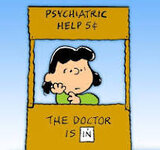bilby
Fair dinkum thinkum
- Joined
- Mar 6, 2007
- Messages
- 40,470
- Gender
- He/Him
- Basic Beliefs
- Strong Atheist
Sure. But that will also happen if they have nonsense to offer, but have convinced themselves that it is valuable.When someone has something of extreme value to offer, they will scream it from the mountaintops!...and yet, here you are 1,700 posts into the thread, still trying to explain the unexplainable.
"I feel that if a person has problems communicating, the very least that he could do is shut up" - Tom Lehrer
So, we need other means to determine what is true than the mere persistence of evangelists.





